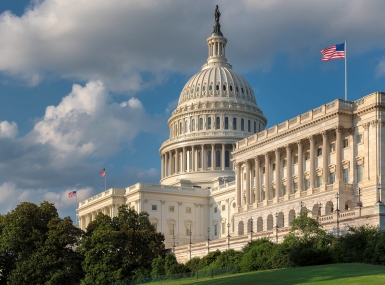Supreme Court safeguards the county role in federal elections administration in landmark Moore v. Harper decision
Author
Upcoming Events
Related News

Key Takeaways
On June 27, the U.S. Supreme Court issued a 6-3 ruling in Moore v. Harper, a historic election law case. In its landmark decision, the Court rejected the argument, known as the Independent State Legislature Theory (ISLT), that state legislatures have exclusive power to set rules regarding federal elections. This important ruling preserves the authority, flexibility and discretion needed by county governments to fulfill our duty to administer free and fair elections and maintain the integrity and security of elections at the local level.
Moore v. Harper involved a dispute over the legality of the 2020 North Carolina congressional districting map, which was drawn by the state legislature only to be invalidated as partisan gerrymandering by the state supreme court. The legislature sued, arguing via the ISLT that the Elections Clause of the federal Constitution gives the state legislature, with no oversight by the state court, the authority to oversee federal elections. In its most extreme interpretation, the ISLT would have far-reaching consequences prohibiting any entity other than a state legislature, including local governments, from setting rules or making decisions related to federal elections.
While states play an instrumental role in our nation’s elections, counties and other local governments run elections on the ground. In almost every state, counties run the dayâ€toâ€day operations of elections, and in every state, elections are broken down to local precincts for voting and administration. This means local governments are responsible for carrying out various key functions, such as identifying and managing polling locations, printing ballots, allocating and protecting voting machines, recruiting and training poll workers and ensuring the accessibility, integrity and efficiency of the voting process.
NACo joined with the National League of Cities, International Municipal Lawyers Association, International County/City Managers Association and U.S. Conference of Mayors to file an amicus brief warning that, if adopted, the ISLT could create an unworkable, bifurcated election system for federal elections (in which state legislatures could operate unchecked by state constitutions and state judicial review) and state elections (where those normal checks are in place.) The brief further argued that these implications would jeopardize localities’ ability to administer elections smoothly and efficiently.
From a practical standpoint, the Court’s decision will not impact North Carolina’s congressional maps. The makeup of the North Carolina Supreme Court changed after the November 2022 election, after which it reheard the case and reversed the ruling at the heart of the dispute. However, by rejecting the ISLT and preserving the status quo, the Supreme Court has created certainty and clarity for county governments tasked with administering elections. Counties applaud this decision, which safeguards our critical role in running elections.
Additional Resources
- NACo joins with local government associations to file amicus brief in historic Supreme Court elections case
- NACo Webinar: How will upcoming Supreme Court action impact local elections administration?
Attachments
Related News

MEGA Act moves in House; NACo raises county concerns
On Feb. 10, the U.S. House Committee on Administration held a hearing to consider the Make Elections Great Again (MEGA) Act (H.R. 7300), which was introduced by Committee Chairman Rep. Bryan Steil (R-Wis).

House passes SAVE Act; Major impacts on county election administration
Next week, the U.S. House of Representatives is slated to vote on the Safeguarding American Voter Eligibility (SAVE) Act (H.R. 22), making it the chamber’s second vote on a version of the legislation in less than a year.

